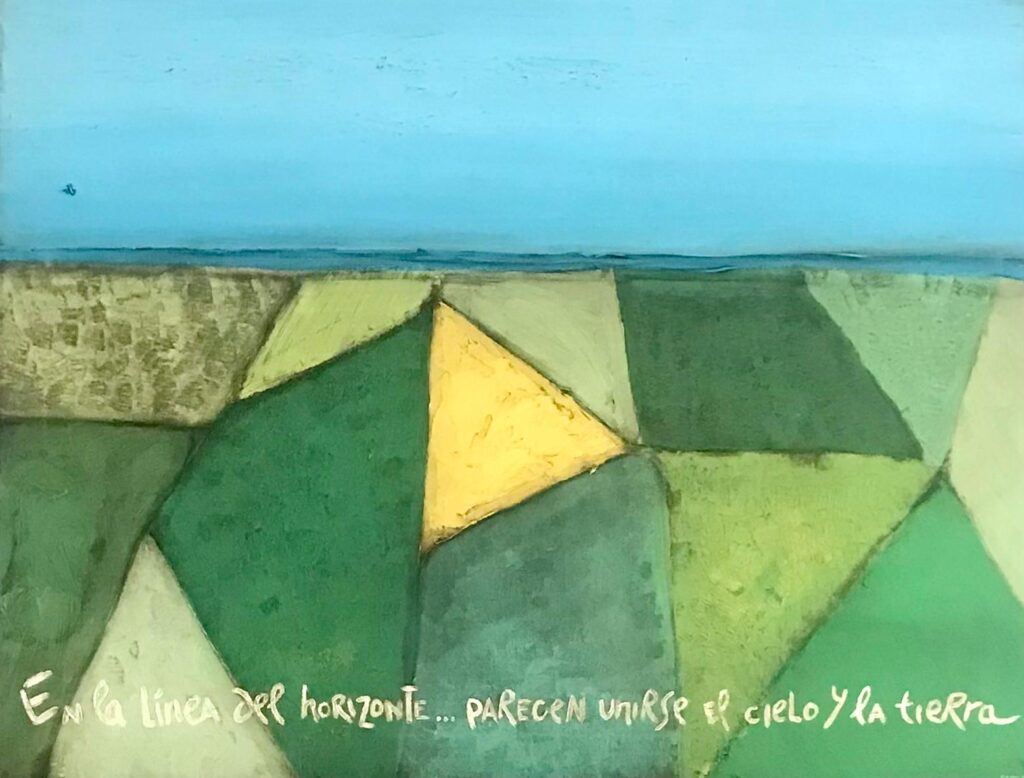Mission, charity and diakonia of social action-formation
A true charity that leads to holiness

As the Word of God together with Tradition and Magisterium transmits to us, with that essential event that is a Council like Vatican II, the reason for the existence of the church is the evangelizing mission. That is, the announcement with the denunciation (prophecy), the celebration (liturgy), and the service (diakonia) of the Kingdom of God that is revealed to us in the Incarnation, in the poor, crucified and resurrected Jesus Christ. The mission of the church embedded in Christ and his good news of the Kingdom with its justice, which gives us integral liberating salvation from all sin or evil and death and injustice, is shaped transversally by this essential key to the service of charity, of love fraternal, solidarity and justice with the poor.
The axis and new commandment of Jesus Christ (Jn 13, 34-35) is love for others, for every human being, rooted in that God who reveals Christ, the Father, the God, Love that he wants for his children, all of humanity. , that Kingdom of brotherhood, of life, of peace and justice with the poor (1 Jn, 3-4). This diakonia of socio-charitable action has been unfolding in history, accompanied by said Tradition and Magisterium, such as the Social Doctrine of the Church (DSI), a substantial element of its evangelizing mission, of anthropology and morality inspired by faith.
Indeed, we must be clear and not forget it, the service of charity with its social action has this DSI as its guide and basis, as are its values, principles, or inalienable and non-negotiable criteria. Such as fraternity, solidarity, subsidiarity, respect for life, the dignity of the person, the family, the option for the poor as subjects of their integral promotion, social justice, the common good, the universal destiny of goods, decent work, human development and integral ecology.
Without all of the above as Francis teaches and insists, (for example) with his recent reference to the masterful (genius) School of Salamanca and its Hispanic theologians, charity is deformed, perverted, becoming a humiliating welfareism, a degrading paternalism that conceals and complicit in the evil and injustices that are at the root of the social problems that the victims suffer. Authentic charity, therefore, is always linked to the non-violent struggle for justice (social and international) with the poor as protagonists of their integral human and liberating development, in the search for the good of all humanity.
Closely associated with the human and spiritual virtue of solidarity, charity contains a constitutive social and public dimension, with a more universal scope, so typical of the credibility of ethics, with its horizon of solidarity and Catholic faith. It is civil love, political charity that seeks the civilization of love, the common good of all human beings and transforming the personal, cultural, social and structural causes of the problems and injustices suffered by the poor and the people. Vatican II and the DSI with the Popes teach us all this, together with the very significant Magisterium of the Spanish Bishops on the church and the poor, for an authentic diakonia of charity, of social and solidarity action-formation. Solidarity charity, Francis affirms, “is thinking and acting in terms of community, of prioritizing the lives of all, over the appropriation of goods by some. It is also fighting against the structural causes of poverty, inequality, lack of work, land and housing, and the denial of social and labor rights. It is facing the destructive effects of the Empire of money. […] Solidarity, understood in its deepest sense, is a way of making history and that is what popular movements do” (FT 116).
Not only do we have to “give the fish”, the assistance action with “aid”, food or subsidies (basic income, insertion, minimum or living wages…). It is not enough to provide “the rod to (teach) fishing”, the action of personal promotion with education and job training or to provide means and work instruments such as wells, etc. Along with the above, if we really want to carry out a true and effective diakonia of charity with its social action, continuing with our simile, it must be possible to “sell the fish at a fair price, so that those fish are not accumulated (stolen), that they do not pollute the river”, etc. It is the inherent political and structural dimension of social action, of charity and of the sin and injustices that cause these human needs, shortcomings and inequalities.
Due to the intrinsic social and supportive nature of people, charity or sin are configured by this structural, public and political character. There we have, then, the relationships and structures (social and historical) of sin such as: the unjust political and legal institutions that prevent the common good, the immoral economic and financial systems that are contrary to the universal destiny of goods; or the perverse commercial and labor mechanisms that go against the dignity of the worker.
Along these lines, the main cause of social inequalities and injustice, such as poverty and exclusion, underdevelopment itself, is precarious and indecent work, together with unemployment, which generates the impoverishment and discarding of the worker, their families and the villages. Faced with this, the DSI teaches that the life and dignity of the worker, with his rights such as a fair salary or other humanizing working conditions, is above capital, profit and profit. Coupled with this, we must promote an ethic of the company as a human community, with the social and cooperative economy, making possible the socialization of the means of production, that is, the workers as authors, owners and managers of the property, operation and destiny of business life.
And it is the basic cause of poverty, of subhuman living conditions, it is all this inequality and social injustice; with an economy that kills and impedes the nuclear principle of the universal destination of goods, above the right of property that must always perform a social and solidarity function. In this direction, we must put an end to the serious sin of usury and financial speculation, with those abusive credits and interests (so unfair) and the stock market with its actions or speculative operations that generate permanent crises, that impoverish, indebt and They ruin the poor, families and peoples. It is about promoting a real economy with an ethical financial and banking system that generates employment, human and social development.
These causes and structural sins feed back on the personal sins and idolatries of selfishness, individualism and greed, those false gods of wealth-being rich, of having, of possessing, power and violence. Quite the opposite of a true charity that leads to holiness, in following the poor and humble-crucified Jesus, exercising evangelical and spiritual poverty with the solidarity communion of life, goods and action for justice with the poor of the earth. . In a similar and inseparable way to the sacrament of charity, the Eucharist, the other – especially the poor and the victim – are the real presence (sacrament) of the poor and crucified Christ who receives, Jesus himself, all this authentic charity, loving solidarity. and justice with the poor, a decisive criterion for our salvation. This is what this tradition and teaching of the church tells us, based on the Word of God (Mt 25, 31-46).
Related

Emilio Girón: Stubbornness and Tinto de Verano
Exaudi Staff
30 March, 2025
5 min

Facing Divorce as a Christian Couple
Laetare
28 March, 2025
2 min

Mars Colonization: Technological Progress or Threat to Human Dignity?
Observatorio de Bioética UCV
28 March, 2025
9 min

The Good Smell of Coffee
Edistio Cámere
27 March, 2025
3 min
 (EN)
(EN)
 (ES)
(ES)
 (IT)
(IT)

